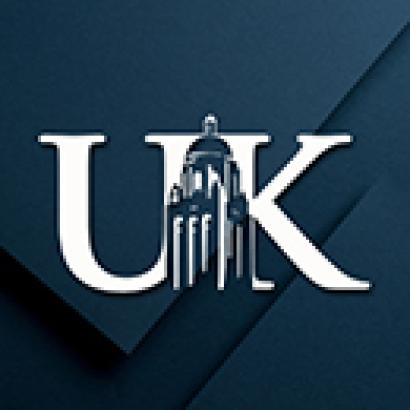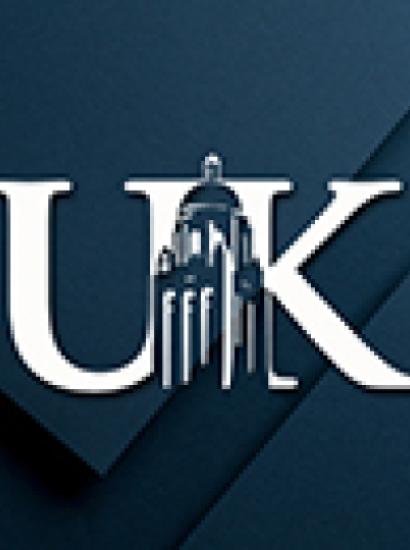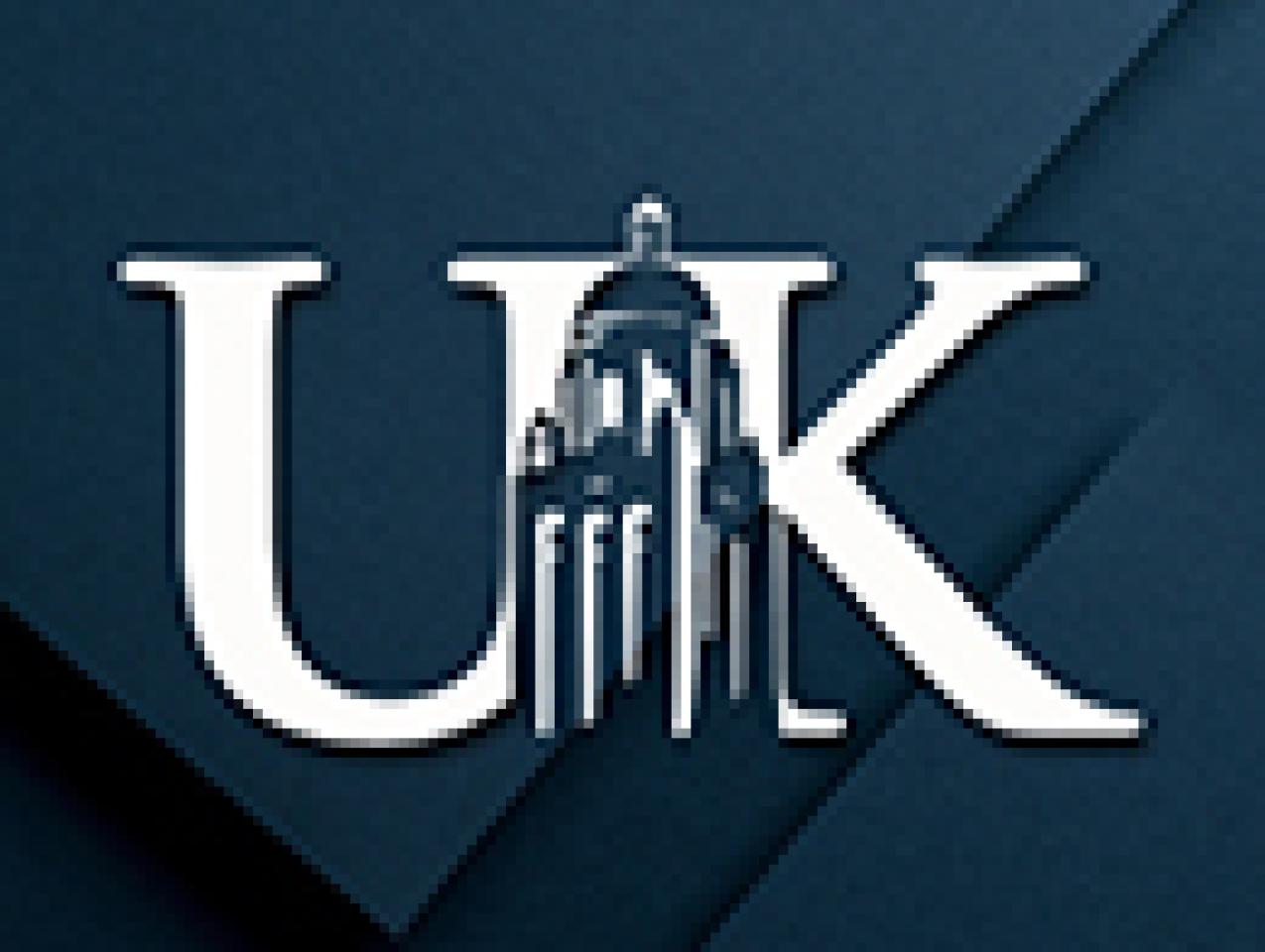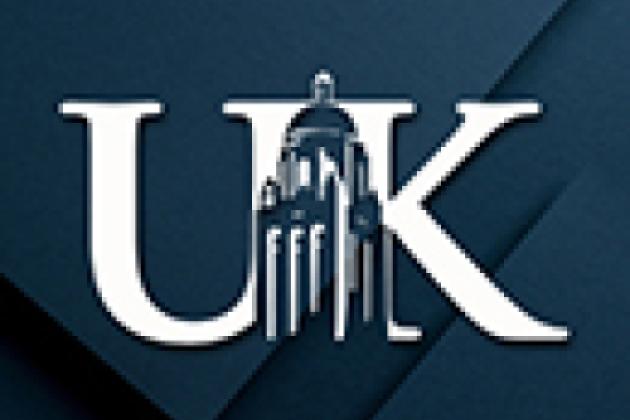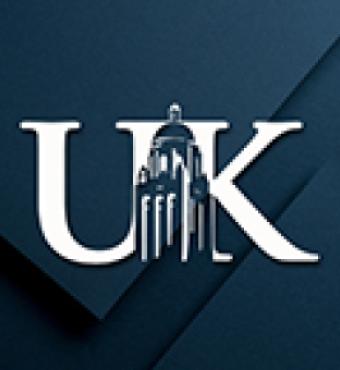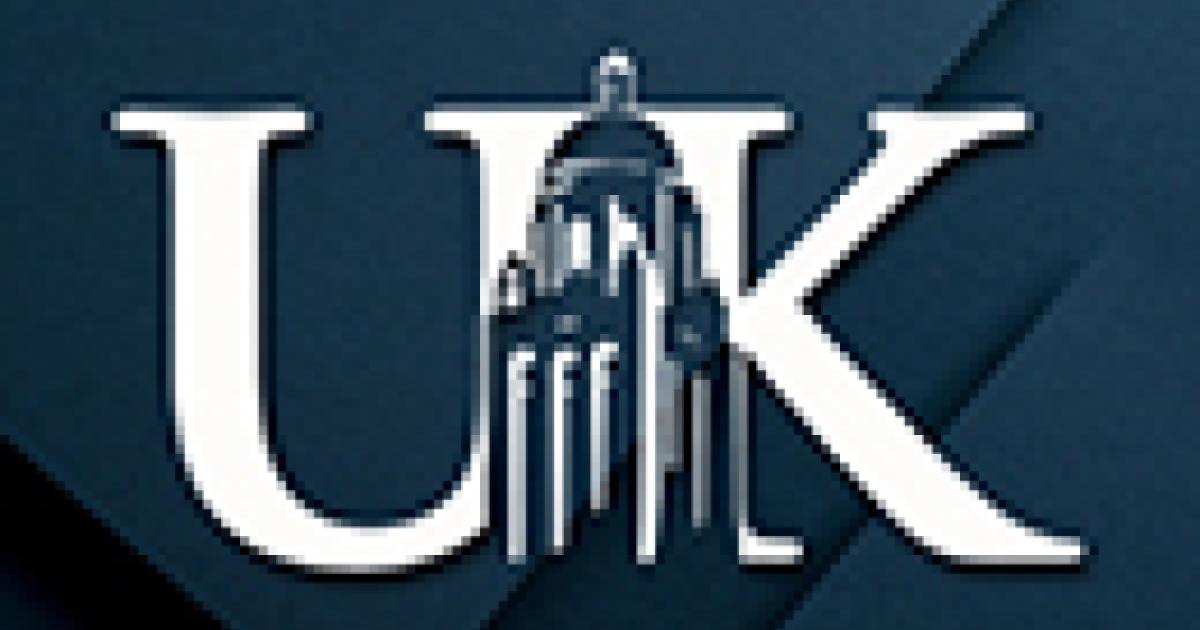- Education
To watch the video, click here.
TRANSCRIPT ONLY
Peter Robinson: The 12th president of Purdue University, former governor of Indiana and my friend since we served in the Reagan administration together, Mitchell Elias Daniels Jr. Mitch, thanks for taking the time to join us and welcome everybody to a special plague time edition of "Uncommon Knowledge with Peter Robinson". Peter Robinson is shooting at home, you're in your office.
Mitch Daniels: I am.
Peter Robinson: Got it. Onto Purdue in a moment, but first the country. You've lived in Indiana since the 1970s. You served as governor for eight years. On protests this past Friday in Indianapolis, the state capital, and I'm quoting from the Indianapolis Star, "The protest started peacefully, "but as night fell, it turned violent. "At least 30 businesses were damaged. "A drugstore was set ablaze, some stores were looted." How does the president of Purdue University hope his students think about what is taking place in the country?
Mitch Daniels: We don't have any students to speak of here on campus right now, for the obvious reasons. So, it's a little hard to gauge how they view this or react to this. I hope with the same sadness that I think most of us feel. One can only hope that justice is brought where it appears to be so obviously necessary, where this all started. And that other people conclude that harming others and innocent people, is not the appropriate response and it's not an effective way to advance a good cause.
Peter Robinson: All right, Heather MacDonald, in the City Journal last night, "The ideological handmaiden of this violence, academia, "has already sprung into action. "The chancellors and presidents of Harvard, "the University of Arizona, "the University of Pennsylvania, Yale, among others, "have released statements over the weekend "assuring their students of their schools' commitment "to racial equality. "No college leader denounced the violence." Too early for a comment or is there a general failing on the part of academia in this country?
Mitch Daniels: I don't know, Peter, I haven't tracked what all are saying. I think probably some of 'em spoke before the violence, or the worst of it, occurred. I can't believe that any of those people condone, let alone, approve of the harm that comes to folks. Three people were killed in Indianapolis over the weekend.
Peter Robinson: Oh they were, I didn't read that.
Mitch Daniels: Well, you didn't. It was in the middle of paragraph five of this morning's article. Maybe the paper had not had enough time to catch up to the events further but. Those were at least the ones I know about. Those were African Americans, they were not killed by police officers. Their lives surely matter as much as anyone's. So, I don't take the silence of those who you, as necessarily reflecting their view points and I'm sure they don't.
Peter Robinson: All right. The reopening, two quotations, Mitch, if I may. President Daniels, former governor Daniels, but I can't help myself, we've known each other so long--
Mitch Daniels: You were right the first time.
Peter Robinson: All right, President Christopher Eisgruber of Princeton, your own alma mater. This is in a statement to the Princeton community of a few days ago. "Princeton will wait until early July "before deciding whether our undergraduate teaching program "will be online or residential in the fall term." President Mitch Daniels of Purdue, in a recent column in the Washington Post. "45,000 young people are telling us "they want to be here this fall. "To tell them, 'Sorry, we are too incompetent "'or too fearful to figure out how to protect your elders, "'so you have to disrupt your education,' "would be a gross disservice to them "and a default of our responsibility." What does Purdue know that Princeton doesn't?
Mitch Daniels: I think we're in very different situations. We have, what, seven or eight times as many students here as there. Maybe they can afford to wait that long. The reason that we enunciated our position as early as we did really was a practical one, Peter. Namely that there is a lot to do if we're gonna completely transform the way we teach, the way we house, the way we feed, the way we conduct all our activities here on this campus in a way that protects people. Certainly those who are at risk and greatest risk, and I just thought we needed every day. We have an extraordinarily detailed action plan across six different realms. Learning and curriculum, physical facilities, testing and tracing and surveillance and so forth. And I'm sitting on top of those teams on a daily basis and we believe we're in a race with the calendar to be as prepared as we can be. At our scale I think it would've been a serious practical mistake to wait. Obviously the longer we wait the more we know and there will be more information. But sometimes in life you have to act on the information that you have and we thought we had enough to justify moving.
Peter Robinson: All right, I can't draw you into attacking people I now realize have become your colleagues. The presidents and chancellors and so forth of this country. So, I'm gonna quit that line of attack, which was one I was really looking forward to. I was going to try hard to draw you to say--
Mitch Daniels: Well, I try not to attack anyone, but go ahead, have at it, Peter. Maybe you can try reaching at something.
Peter Robinson: This notion, it seems to be pretty, that is strong language. "A gross disservice to our students." You point out in the same column that it's very clear what almost no other university president is saying, is obvious to everyone at this point. As a matter of fact, the way you put it, the chance of dying from Covid-19 for a college student, because for some reason we don't yet understand, youth is an infallible protection, nearly infallible protection against this virus. The chance of dying of Covid-19 for a college student doesn't even make the top 10 causes of death. Lower than car accidents, lower than suicides. Overwhelmingly the population of your campus is students. So why, it seems to me you're saying pretty clearly, why should it be beyond the wit of our institutions to be able to protect the professors while permitting the students to come back. And that would seem to me to be an argument that has pretty broad application, even beyond West Lafayette. But I can't draw you on that?
Mitch Daniels: You just summed up the facts as we understand them and our point of view as we have expressed it, but let me go a step further, Peter. We had already been involved, other schools had, but we might've been a little more deeply involved already in online education, trying to see how you could make it as effective as possible. And then of course, this spring everybody had to accelerate their efforts there. So, we've all learned a lot, we certainly have. This fall we will, because we have to, have what amounts to a full, certainly an adequate, menu of courses available. In particular so that any freshman or sophomore can continue remotely if they either have to, for instance if they can't get a visa to be here.
Peter Robinson: Oh, I see, right.
Mitch Daniels: Or if they choose to, because they, having viewed all the precautions, and we'll let them know all the extraordinary things we're doing, all the investments we're making. But if they conclude or their families do, that's it still too iffy, then we'll have this option for them, no one has to come back to campus this fall.
Peter Robinson: You're not insisting the kids come back.
Mitch Daniels: That's right. Now I will say, there's a reciprocal message that we'll be sending. And that is, if you're planning to come to campus, which clearly the vast majority want to do and believe is important to their getting the full education that we try to provide. If you're planning to come to campus then we expect you to pitch in. There's a protect Purdue pledge which we have devised. It's very specific, everything from monitoring one's own symptoms, taking one's own temperature, self-quarantining at the first sign, submitting to testing, wearing a mask indoors at all times and so forth. And we'll be saying to the kids if you're not prepared to do that then you better take the online option. Because we're gonna need everybody's cooperation to make this place safe as it can be.
Peter Robinson: You mentioned that you were a little ahead in going online. Were you ever, in 2017 you purchased an online for profit educational enterprise, Kaplan University. Lots of people will be familiar with the name Kaplan from the test prep company, which I believe the Washington Post still owns. You just bought the online Kaplan University. You renamed it Purdue Global, what was the thinking?
Mitch Daniels: The thinking was two-fold. First of all that there was a great universe of people interested, maybe, in a college degree and a credential that we were not reaching at all. Purdue Global has very, very few 18 to 22-year-old students starting from scratch. The audience it addresses is that astonishingly high number of Americans, 35 to 40 million of them, who are adults. They're working, many have family obligations as well. That's the number of people who started college and didn't finish, I'm not even talking about those who never got started at all.
Peter Robinson: 35 to 40 million started, but didn't finish.
Mitch Daniels: Twice as many such people as all the 18 to 24-year-olds on the campuses that we typically talk about and think about. So, we're a land-grant school. We were placed here in the post-Civil War era with our sister schools to expand access to higher education very broadly. And in the 21st century, we decided a land-grant school needs to add, I call it sometimes the third concentric circle. So, we started with what Abe Lincoln and his allies called the sons of toils, an antiquated term today. But the sons and daughters of the working class basically. And after the Second World War the G.I. Bill expanded things even further to many, at that time men, who had missed out on college, 'cause they were doing something rather important for the future of the country. And now I think of this as the third circle. Working adults in a world, in a knowledge economy, where a post-secondary credential matters a lot to income and job prospects, as a way to reach them. So, that was reason number one and we're very pleased with it. We have a growing number, well over 30,000 students. We just graduated another 1,000 at the most recent virtual commencement the other day.
Peter Robinson: Purdue Global provides what kind of certificate or degree or diploma?
Mitch Daniels: Basically bachelors degrees and many masters.
Peter Robinson: Really?
Mitch Daniels: Yes, and--
Peter Robinson: These are not just certificate programs. These are real diplomas from Purdue University.
Mitch Daniels: No, these are degree programs. A typical student gets some credit for the college that they attempted before, possibly for the military service and training they got there, things like that. Now, there was a second reason and that is I felt we were not making any reasonable progress at Purdue proper toward the capabilities in online or remote or digital education that the future was gonna demand. And I thought we could learn a lot from people who had been doing that successfully and we have. But I do wanna differentiate, 'cause many people just don't understand this. For the audiences that we're serving, almost everybody at Purdue or its regional campuses, is a younger person, either fresh out of high school or not long out. Almost everybody at Purdue Global, the typical student there is a 33-year-old woman who's working and has some family responsibilities too--
Peter Robinson: Great, wonderful, wonderful. All right, Purdue Global and the lockdown. I have friends who work in education and the scramble, I have been told, the scramble to produce online course material among elite institutions and all the way down to the certificate granting for profit institutions, has been remarkable. Question to you, and I know because of conversations you and I have had over the years, that you had doubts about the sustainability of the very expensive, high-end, four year, residential model as the modal experience for college education. Have you learned anything through Purdue Global or do you, looking at the scene, the wreckage almost of higher education as this lockdown continues, do you see that this may be an inflection point? Are other people thinking? What do you make of the current moment and online education versus the four year residential experience?
Mitch Daniels: What I make of it, is that as we see in many, many other contexts and has been observed very often in crises of the past, an event like this doesn't so much trigger a brand new trend as it accelerates those that were already somewhere in train. And there are two obvious ones, at least two, and in the case of higher ed one is, the development of online education which some of us were forced to speed up and some people were forced to start from scratch. And by the way, I think it's pretty clear that the events of this spring have convinced a lot of people that in-person education is really better in many ways. We believe at Purdue, and it's our absolute determination, that the content of the course be just as good whichever mode is being used. But the online version cannot replicate the interaction with faculty, the interaction with fellow students who may be studying the same thing. Let's be honest, the socialization and maturity process that can happen at a college campus. And so in any event, we certainly discern among those students who've now spend part of this spring either as a high school senior, maybe especially as a high school senior, or as a college student who was suddenly thrust back into the home. A belief that they wanna get back to campus. We think in some part it might be the parents happy to see the little darlings run off too.
Peter Robinson: Speaking as the father of a high school senior.
Mitch Daniels: For whatever reason, we had, I'll just tell you. On the day we're recording this, we have just closed the acceptance process with an astonishing 12% increase over last year's record in terms of the number of deposits we received. It's clear that the interest is there to be here. So, that's one trend. The other one which I think is closer to the heart of your question, is that the model at least as practiced at places where the sticker price has gone up stratospherically is now under even more pressure than it already was. People were already beginning to question the astonishing tuitions and fees and other costs. And now much more so. I've sometimes said that we really must worry about some very, very fine little private liberal art schools which are not abundantly endowed and have allowed their costs to rise so much. I've sometimes thought of them as the 80-year-old heart patients of this event. Namely that they were already fragile and endangered and now this virus, unfortunately, may prove fatal.
Peter Robinson: Mitch, now let me give you a contrast of I may. Speaking of one of those fine little liberal arts institutions, although this one is well endowed. Princeton tuition in 2013, the year you became president of Purdue, $40,170. Princeton tuition today, $51,879. Purdue, in-state tuition the year you became president, 2013, $9,992. Purdue in-state tuition today, $9,992. And since becoming president in 2013, you have cut the costs of room, board and books. While, by all kinds of objective measures, improving the quality of your faculty. I don't mean to indicate disregard toward the faculty who were already in place, but your hires have been remarkable. So, you have improved the quality of Purdue University while cutting the costs. While costs everywhere else, including your alma mater, I continue to attempt to draw you on the matter of Princeton , costs everywhere else have spiraled. All right, I've already encountered this modesty and this reticence about whacking the rest of American higher education. But if you can do, first of all, how have you done it? And why can't other people do it as well? Why isn't the market working? Why aren't institutions across the country saying, "Wait a minute, let's do what Daniels is doing"?
Mitch Daniels: Well, I think the market's started working and as I just described, especially given the damage we've inflicted on the American economy, on peoples' incomes and so forth. It's about to operate in a much more, I think, virulent fashion than it already has. How do we operate, the question, Peter, I've taken to answering by dispelling people's suspicions, one-by-one, talking about how we didn't do it. For one thing, that freeze you talked about applied to everybody, not just the in-state students. All the Californians and Texans and all the international students that we had. We didn't do it by adding to the international population. We've actually been reducing it for several years. Still have a significant one and I'm glad. It makes for a lot of variety on this campus, but as a percentage, we've brought it way down from where it was before. We certainly haven't gotten any more money from our state. We are a public school and we appreciate the support our fellow taxpayers give us, but it's been flat over this time period. We have not switched to so called contingent or temporary or less expensive faculty, which a lot of schools have quietly done. Our tenure track faculty percentage is one of the highest in the entire country. And as you said, we have invested. We've added faculty as fast as we've added students. So, those are some of the things people imagine we might have been doing, but that's not fair. We have raised the salaries of faculty and staff, at or above the peer median every single year. So, it's none of those things. Clearly, we have been able to attract more students and we have welcomed more students. And so as in business, a strong top line is a good place to start. We have been careful everywhere we can be with costs, I think there's so much more we can and should do. But by focusing people on the students, I even devised, it was really sort of just an accounting gimmick device. But at the outset, a student affordability fund. And when we effect a savings or an efficiency, we literally transfer those dollars there to make sure they don't get spent on something else, which is a human tendency and it's certainly a tendency in higher ed. And we've said to people right along that the more we can do this, the more affordable and accessible a place Purdue will be. That's really our mission. Not every school would see their mission quite that way, but so far, so good. And now we'll have to see in the new era, but again, it appears that we'll have a very strong complement of students with us. In fact, our worry, if we have one right now, is will we be able to operate in the new normal circumstance of safety for all with a place that crowded?
Peter Robinson: Got it, well, okay. All right, you've already demonstrated that I can't draw you on the matter of the rest, everybody else in higher education. But the market is sticky at the very least, isn't it? By the way, our friend Haley Barbour, former governor of Mississippi, he mentioned to me once, when he was governor. Turns out anybody can cut 10%. The next 10% is really hard. You've been there for seven years now. You're sure you're not getting to bone? When you keep cutting?
Mitch Daniels: Oh, I'm sure. Bob Gates, a famous American, great, great figure of our time, was one of the first people I talked to when I was approached about this job and really didn't know whether it would make any sense or not. So, I called him for advice in addition to his many public sector capacities, as you probably know, he was the president of Texas A&M, very similar school. And he said to me, he said, "I told my friends, "my colleagues at A&M." He said, "We do three things here as a land-grant school, "teaching, research and engagement." Meaning taking our research and the knowledge we create out effectively--
Peter Robinson: Hoping people use it, right.
Mitch Daniels: He said, "Now, if you're not doing one "of these three things, we have to ask what you're doing." And there's still some things we do that don't fit under any of those headings.
Peter Robinson: All right, all right. Mitch, the question of values. Purdue University, land-grant institutions founded in 1869, just over a 150 years ago. You celebrated your 150th anniversary last year. And in those days, I'm going to assert, no university in America needed to spell out its fundamental or underlying values, because the Judeo-Christian world view was so implicitly assumed across the country. And now, of course, we have far fewer Americans who accept that world view and I'm just wondering. I listened to your commencement addresses, I listened to you talk about your mission as a land-grant university. All of this comes from a deep sense of values. I'm sure that's what makes your commencement addresses resonate. Every single one of them goes viral. I check on YouTube and commencement addresses from years back have hundreds of thousands of views. But how do you, if you're not allowed to assume, as I suppose the position in which you sit now, means that you're not allowed to assume. If you're not allowed to assume that your audience is overwhelmingly Christian with some sprinkling of Jewish believers. Where do you derive your values? Where do you find the common values that permit you to talk about not just technical achievement? Which there's plenty of that out here at universities in California. But you also talk about character. Let's take one example, freedom of speech. How do you derive freedom of speech? And you have insisted on it at Purdue in a way, again I know you won't attack your colleagues in the profession. But very few, other than the University of Chicago, almost no one, has taken as strong a stance insisting on freedom of speech as Mitch Daniels has at Purdue. Where does the value come from? How do you found it? Or how do you ground it rather?
Mitch Daniels: Well, that's a very good example and so there are a couple ways that that can be answered. One is that this is a fundamental human right. Even people whose world view these days I might worry about, I might find authoritarian or overly paternalistic, disrespectful of individual dignity. But even folks like that, I think, believe that freedom of speech is a right that they have and that all of us do. But it's very interesting, I think, in the higher ed context, it's been well pointed out that limitations on speech are the enemy of knowledge. Knowledge cannot advance except through the collision of ideas. John Stuart Mill said, if I'll get this right, "the century goes to sleep when the enemy leaves the field." Something like that, his point being that it's only through argument, it's only through challenge, it's only through those heretics who don't believe that given scientific theory, the science of today is exactly correct that knowledge advances. And so the entire core of higher ed is threatened when conformity of thought and conformity of speech is enforced, either directly or through peer pressure.
Peter Robinson: All right, I'm gonna ask you a question that may be a problem for you. So, if you wanna duck it, I'll understand. But of course you served as chief of staff to the legendary Indiana senator, Richard Lugar, republican. You served as O&B director for President George W. Bush, republican. So, I am sure that you have to be very careful among, to demonstrate that you're not partisan in your current, I know this, because we've talked about it. You have to demonstrate you're not partisan in your current position. However, all right, here's a quotation from Yuval Levin's new book, "A Time to Build". It was published earlier this year, marvelous book. "In 1969, a quarter of American professors "described themselves as right of center. "By 1999, the figure was down to 12%. "Recent surveys have put the number below one in 10 "and the situation is far worse in the social sciences "and the humanities. "As political scientist Jon Shields noted in 2018, "'By some prominent measures Republicans make up 4% "'of historians, 3% of sociologists "'and a mere 2% of literature professors.'" All right, of course you're not going to go around Purdue and say, "You, are you a Democrat or a Republican?" Your faculty wouldn't begin to stand for even the merest indication that you were thinking in those terms. On the other hand, if you have academia monolithically on one side of the political spectrum, that means you're recruiting pool is tainted or at least affected, I shouldn't say tainted. How do you deal with this when the argument is, it's become so extreme that it affects the ability of the institution to give the kids a straightforward education?
Mitch Daniels: There's no point in arguing about the facts, they've been established over and over and over again and Uvall was only the most recent to tally 'em up. I don't think it's a great mystery. Higher ed is a self-selection process basically and we've all seen corporate boards of directors select people like themselves. Sometimes to the detriment of the enterprise, but it's just a human trait. And so no sense spending much more time on that. Again, I would just say that we try to remind everyone and I will say that there are many people who hold to the views you just described who do, I think, understand and advocate for freedom and diversity of thought. The Chicago principles, which some of us named them, after the university and put 'em out. And some of us quickly adopted 'em, were written by an old lion, Geoffrey Stone, of the Democratic side of the world of the original Civil Rights movement and so forth. So, I don't know necessarily despair at that. We do try to be vigilant to make certain that people are not being told what to think as opposed to how to think. And it happens now and then and we report the complaint promptly, as we would any harassment complaint. And hopefully, the behavior is not repeated. But we here at Purdue are in a little better position, I think, than most. And, Peter, very honestly, first of all, we are one of the most STEM-centric, to use the current acronym, schools in the country. More than 2/3 of our students are studying a scientific discipline, something founded on objective facts. And therefore the people teaching them are, they probably have strong views about public issues. But that's not the content of the class, it's not the focus of their careers. And secondly we, although we draw students from everywhere, only about half our students are from Indiana, but there is to some extent, I believe, a different center of gravity here. A little more of a balance, the perspective, that both the faculty and the students bring. So, I'm not disputing the reality of the facts you reported. I'm not arguing that it makes no difference and it's just fine. No, I think that diversity of thought is at least as important as all the other forms of diversity that get more attention. And I hope that some of the excesses of recent years have brought about a little more reflection, a little more balance. For whatever it means, the episodes of harassment, of disinvitation of speakers, of blatant indoctrination of students appears to have moderated somewhat and I hope that'll continue.
Peter Robinson: All right, couple of last questions based on your online commencement address of a couple of weeks ago. "In my own college days," I'm quoting you, "a briefly famous Harvard professor offered probably "the worst advice ever given "to a younger generation", explain.
Mitch Daniels: Oh, I just did a little turn on the once widely known, I don't know that any of our students today or maybe even their parents remember Timothy Leary. But he got his 15 minutes, maybe a half an hour, of Andy Warhol's fame back then. And he said, "Turn on, tune out, drop out." And I suggested maybe inverting all that. This was in the context of drawing our students', our graduates' attention the danger that in a highly digitized, technologically dazzling world that we live in, that it's too easy to slip into limiting one's human contact to things like we're doing right now or less. That our success as a species has come from our ability to communicate and to collaborate and to interact with each other. And there's all sorts of evidence, I didn't think any of this up. I'm just watching the literature grow and the concerns grow about loneliness, good heavens, among our young people that no longer can be blinked away, it's real. And so I was encouraging them to tilt in, lean against this trend. It's a little bit related to another couple speeches I've given to previous classes about the big sort. I've said to them, if you're not careful, you're now an aristocrat. You don't think of yourselves that way and it's not based on land or inherited wealth or the title or your father's a commissar in the Communist Party. You're an aristocrat because of what you've learned here and the skills that you're taking into a knowledge economy. And I said if you don't make an effort, you may work with, live near, marry someone just like you and you'll short yourself in life if you only associate with people who are similar. Well, I think this so-called loneliness epidemic is the next step down that stairway that I hope we will turn around and march back up.
Peter Robinson: You continued in your online commencement address of a couple of weeks ago, you talked about geographic stability. You cautioned the kids to think twice about moving and moving and moving in their careers. Live near your friends, give that some thought. Here's another piece of advice you offered, I'm quoting you, "Nothing statistically reduces the chance of loneliness more "than marriage, especially marriage with children." I'm reading this and thinking, do those kids know that they have the president who is a radical member of the counter culture? So, a couple of closing questions. Let's put it this way, defend the Midwest--
Mitch Daniels: If you're gonna--
Peter Robinson: Yeah, go ahead.
Mitch Daniels: Let me just say, Peter, you can read that anyway you want. We're data driven here at Purdue University, as I said, we're a STEM school. Each contention in that speech, or frankly ones before it, comes with ample empirical evidence behind it. I'm not making these things up. They may happen in some cases to be consistent with what you might call a value that I have embraced at some point. But that's no basis for me to offer that as advice--
Peter Robinson: So, is that how you--
Mitch Daniels: Information, you know? I think I can do this, because there's more than ample documentation for it.
Peter Robinson: So, is that how you've done what you've done? Here you are, republican to the fingertips, two term governor, republican governor of Indiana, and you walk into a University where you know most of the faculty thinks quite differently about politics. Many of the students, I don't know how popular Bernie Sanders and Elizabeth Warren were on your campus but more popular than in your secret mind you might have been pleased to see. And yet you've done it. Is that what you've done? You've taken what you view as the common sense, Midwestern values with which you've grown up, but found, or fitted them, fitted them to data? To a rigorous, technical, sociological point-of-view. I'm putting it crudely and it may be a stupid idea in the first place. Let's see what you do with it. Is that what you've done? Somehow though.
Mitch Daniels: I don't think, I wouldn't say it that way. First, I feel obliged to get it on the record, yet again, I mean we live our life in chapters, Peter. A lot of folks don't know or wouldn't know, but the longest stretch of my working life, wasn't in government, wasn't in politics, wasn't in higher ed, it was in business. I guess I went off as a good voter, but I wasn't an active political figure for a very long time and I'm not now. On the day I accepted this job, I still had six months to go in the last job. There was a campaign that fall, I abstained from it which was not well received by my allies at the time in the Republican Party. But I asked them to understand that out of respect for a public institution, I was done with partisan politics as long as I was here. I have not had a single thing to say, taken a single active step, made a dollar of donation, nothing in partisan politics from that moment on. So, with that disclaimer, I think I'll just say that, I've simply tried to do right by this institution. I believe in its mission. I believe in its value, particularly to the state that supports it, but beyond I'm talking now about the need. We've invested heavily. We are the largest engineering school in the top six, eight, 10 in the country right now. We are one of the largest computer science schools. We're trying to turn out talent of all kinds, but particularly the kinds that we believe serve the state and national interest especially. And so that's what I'm about here and if I speak to some of these other matters now and then and it's mainly then, maybe once a year at commencement time, I try to do it as we would expect any Purdue faculty member to. On some basis of fact, not merely opinion or some visceral view that I might hold.
Peter Robinson: All right, last question then. I've been looking at your commencement addresses. In 2018, you warned against the big sort. On the grounds that was for a self-governing people it's poison. You've spoken self-governing people. You've spoken just now about the state and national interest. And you place Purdue, often when you speak, you place Purdue firmly in the American tradition. You're a land-grant university with a specific mission, a specific geography, one of the great institutions in the middle of the country that was founded with a specific purpose in the American tradition. All right, I contrast this with the ethos at some campuses where we, of campus X, belong not to any individual nation, but to the world. I don't know how you'd address that, but that's just not the way you walk and talk and say things. This country matters to you still. So, how would you, we've been through a remarkable time when first the government locked us up and then in the last few days, it's proven incapable of protecting life and property. And we're about to go through what Lord knows is going to be an election season that we'd all, we might wish to go to sleep right now and wake up on the other side and just skip it. What would you say to students at Purdue, overwhelmingly Americans, although you do have a large international population, I wanna stipulate that to save you the time of doing so. What do you say to students at Purdue about the American project? Is it still worth their time or is the whole thing, are the wheels coming off and should they just pay attention to their families and their careers? How should they think about this?
Mitch Daniels: I guess I would start by saying that this is a nation founded with a commitment to individual freedom and dignity. That Purdue University was created very much as an extension of that project. Project's a good word, we're a work in process. We are still very imperfect. More, I think than most peoples, Americans have always held themselves up for inspection and been self-critical and we better always be. But it's still an exercise in self-government. The kind that is fitted to people of dignity, creatures of dignity, individuals of dignity. But I guess I would tell 'em if they asked me directly, this'll be for you to decide. Every generation of Americans has to decide what kind of people will we be. What kind of nation will we have. If it at some point we decide the problems are just too big or we can't work 'em out among ourselves. We needed a higher authority, a dictator of some kind, then I guess free people can choose such a future if they want. I have stubbornly believed that Americans ultimately wouldn't do that, wouldn't put up with that. But there are always gonna be folks, certainly in this country and everywhere, who are eager to order life for everybody else. Never any shortage of people ready to come either out of benevolence or malevolence, but in any event, tell other people what to do and what not to do. I believe that the kind of young people that we educate at this place, ultimately will first not freely submit to that themselves, they will want to make their own decisions, lead their own lives. And secondly, that I hope they'll be the kind of people who can work with others. That one speech you talked about, I talked about tribalism which is now a very commonly used term. I think I said near the end of that talk, boilermakers need to build bridges of all kinds, not just the physical kind, but bridges across these divides that have now riven our nation and our culture. And I still hope that higher ed had done well, here and at countless other schools, will contribute to a way out of this current troubling time that leaves us a free people and a self-governing one.
Peter Robinson: Mitch Daniels, 12th President of Purdue University, thank you.
Mitch Daniels: Always fun, Peter, thanks.
Peter Robinson: For "Uncommon Knowledge", the Hoover Institution and Fox Nation, I'm Peter Robinson.








